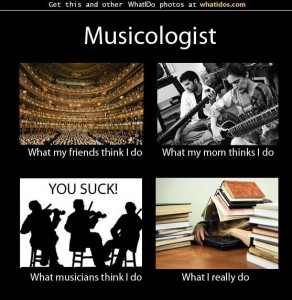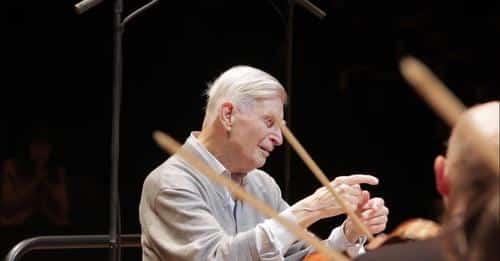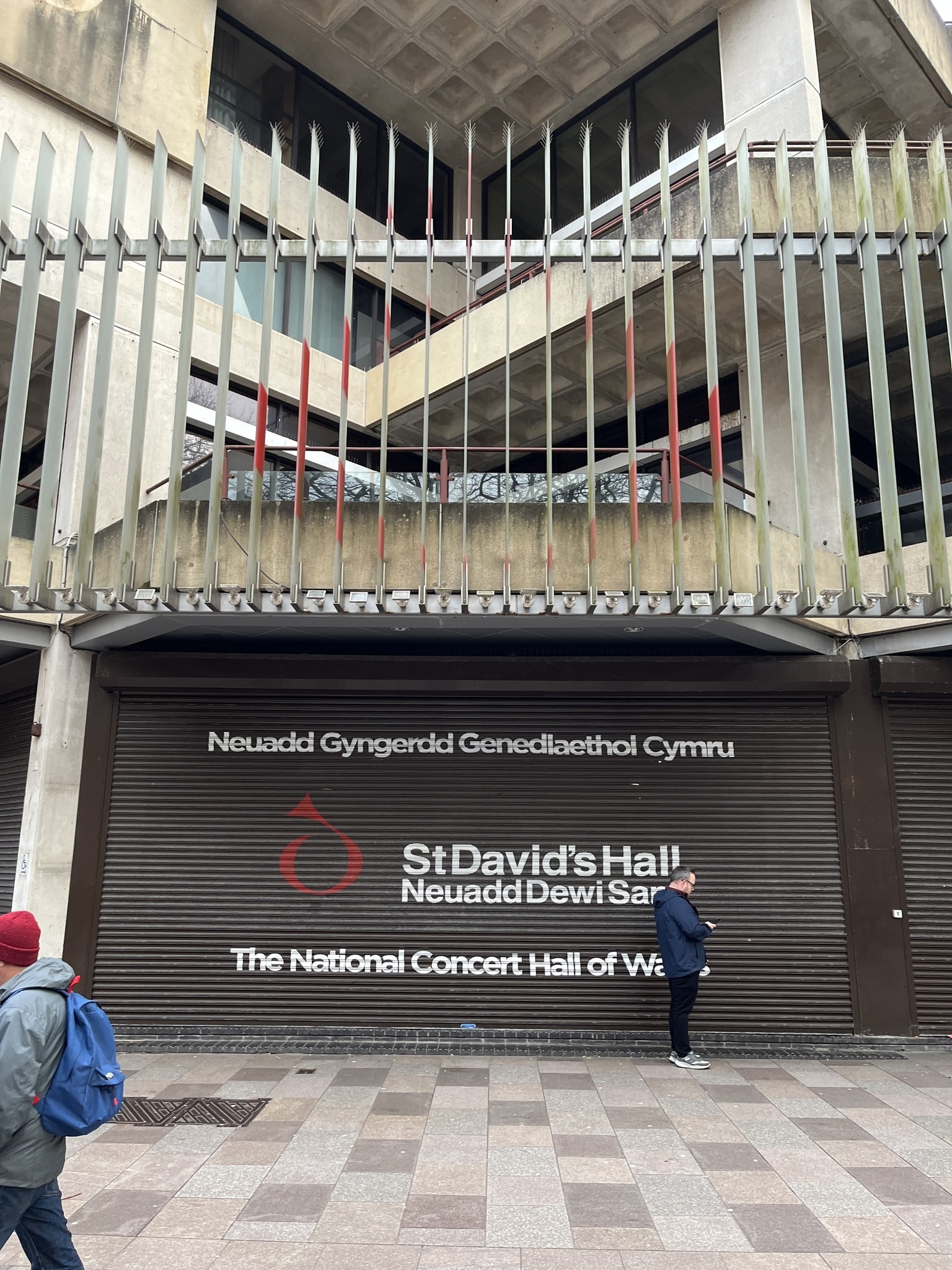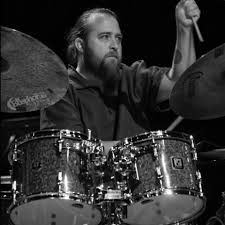Do musicologists love music?
mainIan Pace, a paid-up member of the tenured tribe, has a confession to make:

I have encountered too many academics – not a majority, but still too many – who have very little interest in listening to music, at least in a manner which requires any sustained attention. Some even have a sneering and superior attitude to anyone who really cares about music at all, and exhibits any enthusiasm for it. I have even had the misfortune to be faced by the argument that playing music in lectures is a waste of time. I find those people of this persuasion, and much of their work, life-denying, bleak and depressing, and this tendency is fundamentally in opposition with every reason I wished to be a scholar myself, and all the values I wish to encourage in students.
There are various disciplines which, at worst, serve in large measure to enable the scholar to ‘dominate’ the object of their study. These enable the scholar to stand in a position of superior judgement to other people or the fruits of their endeavours, dissecting them in a judgemental fashion, frequently of a dismissive variety. Amongst the disciplines I would characterise as prone to this are psychoanalysis, some varieties of anthropology and ethnography, and indeed some types of ideology critique and other forms of cultural ‘interrogation’ (including some undertaken from the position of gender studies, post-colonial studies, orientalism and so on). Ultimately, many serve to flatter the scholar, and thus inflate their scholarly capital within the field of academia, but what is their wider value?
I fear that this is equally the case with musicologists not interested in engaging with, listening to, and opening up their own ears and minds to music, treating it instead at most as something to be consumed and then even excreted, or basically ignored in an aural sense.
I fear Ian may be right. And they may be a majority. Read Ian’s full post here, and discuss.





I’m proud to be a musicologist and our music group just passed the 16 million view mark for our performances: part of that is the musicology which inpires us. Musicologists contribute in so many ways to music, and are a vibrant and essential part of the musical whole. We aren’t all the same, but my experience is that musicologists love music and have devoted their lives to studying music, thinking about music, and, importantly, teaching music.
Feminist musicology can be a fruitful field.
I recommend to google Susan McClary and her ”rape case” against Beethoven’s 9th symphony. Monty Python couldn’t have invented this…
Whilst certainly no fan of McClary’s work, I would not completely dismiss the idea that gender ideologies can be sublimated within supposedly abstract musical language (through archetypes descending from male and female operatic characters and the like).
However, there has been loads of musicology making dramatic claims like that of McClary about Beethoven’s 9th, and far too few musicologists taking seriously real issues such as teachers like Philip Pickett (and others, some at the same institutions) exploiting their position to actually rape students.
What about your friend George Galloway, Ian, who draws a distinction between rape and what he terms ‘bad sexual etiquette’?
Galloway doesn’t understand the laws concerning rape. Consent must be given every time. At the same time, the larger context of the accusations against Assange are also troubling–an impossible dilemma that must delight the CIA.
In McClary’s attempt to describe the ethos of domination in classical music, she describes the recapitulation of the 9th as similar to rape–a deflation of the concept of rape that is dangerous and troubling, even if I sense the idea she’s trying to express. Interestingly, the metaphor of Beethoven’s 9th becomes vastly more complex if the perpetrator of the recapitulation (Assange allegedly penetrated one of the woman a second time without asking when she was asleep) were to be turned over to an omniscient authority who would put him in a secret prison, with secret tribunals, and subject him to life in prison or a death penalty for revealing secret information about the omniscient authority’s murderous immorality. This clearly takes Beethoven to the dark and mysterious realms of “Clockwork Orange.” It might even fit the subtext of Ian’s essay, which decries absolutist, almost Kafkaesque ideologies in music.
Surely the spectacle of power and public subjugation in the symphony orchestra, threats, the whipping and slashing of the phallic baton, and the orgiastic build to climax under the watchful and absolute authority of the conductor are worth considering from numerous perspectives. Why do patrons expect this ritualized public subjugation from orchestras? Is there a thrill in vicarious satisfactions of sadism? Is it possible to summarily dismiss these concerns?
On behalf of McClary (whom I know), I can say that she does indeed like, or even, really, love music. I have found any number of her arguments or assertions utterly unconvincing–particularly the more spectacular ones–but there’s no doubt in my mind that, at the end of the day, she cares deeply about musics–especially individual pieces–and their meanings.
Which reveals something rather embarrassing about her opinions about Beethoven 9.
Very interesting article. Postmodern musicologists make the same criticisms — that modernists do not really listen to popular music and thus misjudge it. They argue that this is an attempt of closed-minded modernists to dominate music, to objectify it for their own ends.
Musicians, and especially composers, are now trapped between the jaws of these two monolithic ideologies. The proponents can also be defined geographically as more-or-less the postmodernist English-speaking world on one side, and modernist continental Europeans on the other. This is in contrast to the thirty years between 1950 and 1980 when modernism was the sole and totalizing ideology.
The arguments on both sides point to the idea that we can’t define what listening is. Or at best, we define listening in terms of our aesthetic biases – all else being not-listening. We discover that one of the greatest impediments to musical understanding is ideologically induced deafness.
The idea of a desire for domination in musicology is interesting. This is readily apparent on the AMS-list where the atmosphere of academic one-upmanship is at times almost pathological. In the English-speaking world, musicological research is conducted mostly in elite schools that can support such a rarified field. As Noam Chomsky has noted, the principle function of elite schools is socialization in elitism itself. This pervasive ethos of superiority can create an atmosphere of hierarchy and domination that sucks the life out of music and artistic endeavor. Status replaces music as the primary goal and detracts from a genuine desire for knowledge and understanding.
It seems to me that Ian’s point has to do with literal disinterest in music- any music- itself- a rather less loaded but more damning critique than you take it to be.
I see a disinterest in music as only one of his points. It is presented as the principle theme of his essay, but I sense his main goal is actually hidden, or perhaps unconscious – an effort to defend modernist music, which is the core of his repertoire, from postmodernism which is much more dominant in English-speaking musicology.
In any case, I’m more interested in the causes of the seeming disinterest, and why the field appears to have it. If you are Jude Ziliak, the historical performer, your work would contradict Ian’s observation in many ways. Musicologists as a whole seem to deeply appreciate performer-musicologists, thus revealing an actual interest in music itself.
I’ve also noticed that some performer-musicologists see themselves as separate and in some ways superior to purely academic musicologists, as if their more direct connection to music makes them more authentic as scholars. It’s only after we analyze these possibly distorted perceptions that we might be able to determine if musicologists in general actually have a disinterest in music. Over the last three decades, musicology has spent a lot of time looking at itself. Are they using fun-house mirrors?
“dissecting them in a judgemental fashion”
The word is “judgmental.”
Just sayin’.
judgemental |ʌˈmentl| adjective
variant spelling of judgmental.
********
Another source:
judgmental
Also, especially British, judgemental.
************
Just sayin’, and not judging….
I’m afraid you are right.
I’m a student of Composition forced by his mother to attend a Ph.D. in Musicology and it’s absolutely bleak: basically, i have to do boring bibliographically research on the score i would like to perform and emulate. Bibliographical research is vital in Natural Sciences, and i would perfectly agree in doing it for a Ph.D. in, i.e., Astrophisics. But Music is all of another field, althought people outside of the field (and my mother, as long as i could care for her, is one of these) can’t understand the difference.
But, sincerely, it’s all of another mentality: i can’t simply understand people that, put in front of a Score, read the Critical Apparatus before the Music. Ok, the former is interesting, but the latter should be the mainstay…
I’m sorry you’ve been “forced” to “attend” (?) a Ph.D. in musicology. I’m also not sure what sort of bibliographical work you’re doing, but it’s absolutely necessary if you’re going to do good music history. Yet for musicologists it’s also absolutely necessary to spend time studying scores, doing so carefully and thoroughly. The problem is that too many music historians give this aspect short shrift. As a result, many of the historical questions they take up are dull and inconsequential.
Much of the best musicology, though, is exemplified by efforts to wed analytical rigor to historical insight. Such endeavors shed light on both the acoustic surface of the music and its deeper cultural and historical significance.